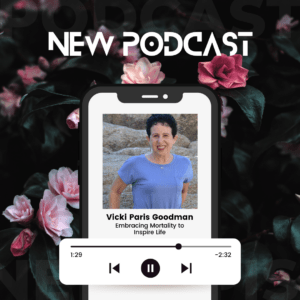
When my experience defies conventional thought, I write a book...
Your Comfort Zone: How You Treat It and Why It Matters

My dad was not one to dole out insightful advice. Indeed, he was far more likely to grab any opportunity to mindlessly, and tongue-in-cheek, offer up his favorite old standby: “Suffering is good for the character!”
Yeah, I know.
But the one occasion on which he said something truly helpful, it was a doozy. And it carried over to many other aspects of my life. Here’s how it came about…
Our family of four was at the dinner table one night when Dad asked if anything consequential had happened at school that day. I volunteered that my eighth grade English teacher, Miss Peterson, had given an extra-credit assignment to those students needing to raise their grade in the class.
Dad asked, “So, are you going to do the assignment?”
I snottily replied, “Why should I, since I’m already getting an A in the class?”
Dad glared at me across the table with an expression that might have been appropriate to facing down an axe murderer and thundered, “Don’t not do the assignment because you don’t need it for the grade! Do the assignment because you might learn something!!!”
I’ve been doing the proverbial “extra-credit assignment” ever since. Meaning, any time throughout my life and career I’ve been presented with an opportunity to do something new and different, I’ve usually embraced it. Thank you, Dad. Your tirade that night has served me well.
Writing for Psychology Today, Leon F. Seltzer, PhD ,asks, “Would you rather lead a life of caution, however self-constricting, or one (not risk-free but not that threatening either) of enthusiasm, novel undertakings, adventure and discovery?”
Dr. Seltzer does not understate the choice, which could well be regarded as a choice between “life” and “death.” After all, isn’t the stagnation resulting from adhering fearfully to the confines of one’s comfort zone a kind of “death”?
I believe Dad’s words changed the way I treated my comfort zone. I couldn’t very well have grasped new opportunities if I hadn’t been prepared to take some risks and stretch my limits. Besides, I thankfully realized early on that the worst thing that might happen when exceeding the boundaries of my comfort zone was to look foolish. When weighing growth and a far more interesting and accomplished life against the possibility of failing or looking silly, the choice seemed to me a no-brainer. Go for the growth! And I did.
None of this is meant to imply we should spend all, or even most of, our time outside our comfort zones, or that we should break through those limits to an extreme degree.
In an article for PsychCentral, Elaine Mead writes, “A little over a century ago Robert Yerkes, a celebrated psychologist, began speaking of a behavioral theory whereby, in order to optimize performance, humans must reach a level of stress slightly higher than normal. He referred to this as “Optimal Anxiety” and it seems that this space exists just outside of our comfort zone.”
Mead directly quotes Yerkes as saying, “Anxiety improves performance until a certain optimum level of arousal has been reached. Beyond that point, performance deteriorates as higher levels of anxiety are attained.”
This sounds right to me, given a lifetime spent challenging myself to conquer fears and master new skills: a little at a time, persistently tackled, each bit of progress a victory. In fact, the victorious feeling that comes from succeeding at something scary and new is the elixir that makes us want to take on challenge after challenge. It’s a far more satisfying habit than the one that keeps most people from stepping out of their comfort zone, their safety zone. I highly recommend it.



